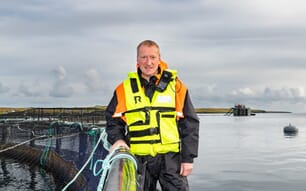Everything from fuel consumption and economic considerations to the impact on local communities will be calculated, as will the welfare of both the fish and employees.
So says Scientist Kathryn Donnelly from the food research institute Nofima.
Three scientists from Nofima – Senior Scientist Petter Olsen (Project Coordinator) and Scientists Kine Mari Karlsen and Kathryn Donnelly – are participating in the three-year EU-financed project.
“We will develop a tool that enables individual companies and fishing boat owners to carry out a simplified life-cycle assessment (sustainability impact) of their products, including environmental, economic and social impacts,” says Donnelly, adding that the WhiteFish Project focuses on cod and haddock fisheries in the Northeast Atlantic.
More than 15 scientists are participating in the project together with industry organisations from around Europe
Kathryn Donnelly says the initial phase of the project will concentrate on accessible data, for example fuel consumption. Fuel consumption is one of the most important from an economic with regards to sustainability and the environment. This will be based on case studies. This data can vary from year to year or trip to trip depending on the accessibility, depth and density of the fish etc.
“In the next phase of the project, we will systemize a series of data in order to achieve the broadest possible picture of the enterprise’s sustainability impact. We will use life-cycle assessment (LCA), which encompasses cradle to grave thinking for products and the instruments used in creating them, from production of the boat through to production and sale,” says Donnelly.
Is it the case that the tool you are developing will be suited to strengthening the image and reputation of the seafood companies and, as such, contribute to increased sales and price in the market?
“The tool will be broadly applicable. It will enable the company to carry out an internal assessment of sustainability and identify where it may be improved with respect to the environment, welfare and economics. Naturally, the documentation of an improved sustainability profile provides the basis for attaining advantages from a marketing perspective,” says Donnelly.
Senior Scientist Petter Olsen says that the tool to be developed in 2014 will be free and available to all in the industry wanting to document environmental impact and sustainability.
“The project participants include the freezer trawler ”Hermes”, which has charted fuel consumption and emission, and the Norwegian Fishermen’s Sales Organisation, which is responsible for ensuring the tool becomes known and is used beyond the limits of the project,” he says.
Analyzing Fish Capture from A to Z
NORWAY - In the course of the next three years researchers from three countries will analyse variables related to sustainability of wild caught fish.
by Lucy Towers



